Profile
Clare Woulds
-
Read more
Even though we don’t see it very often, the sea floor is a very important place. It is home to a dazzling variety of organisms, many of which have not been seen before. I do experiments to work out what these animals eat, how they interact with each other (who east who!), and how the conditions in their habitats affect them. My experiments usually involve me going to sea, collecting seafloor sediment (mud), spending many hours carefully preserving my samples, and often getting very muddy. For a blog about my most recent research trip see www.jamescook.com, and scroll down for links called ‘Clare’s blog entry’.
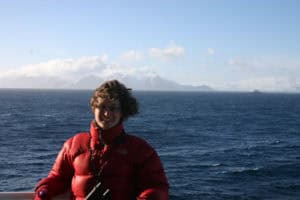
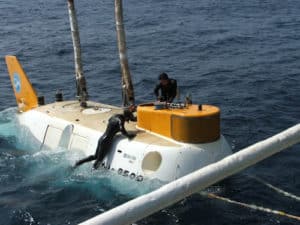
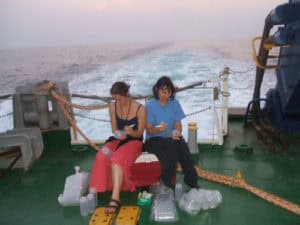
The seafloor is also an important location in the global carbon cycle, as organic carbon in the form of dead plants and animals can become locked away in the sediment for millions of years. We have to understand how all parts of the carbon cycle work if we are to predict what may happen to our planet in the future.
-
My Typical Day:
There’s no such thing as typical! It could involve juggling spreadsheets to analyse data, lecturing to students, or spending hours up to my elbows in mud.
-
Read more
I guess most days are spent in my office in Leeds. I arrive at 8.30am and check my e-mail. I’ll then get on with the work that I have planned, and this ranges from designing new projects, to analysing and writing up data from previous experiments, to planning and giving lectures. I’ll also often have meetings with colleagues to discuss new projects, the running of the school, or with my PhD student to check that her research is going as planned.
However, there are many days and weeks when I am not in my office. I might be at a meeting elsewhere in the UK or abroad, discussing results or future projects with people I work with from all over the world. I might be on a student field trip, teaching the next generation of scientists how to do fieldwork (the Alps and New Zealand are trips I will be doing this year). or I might be at sea, doing my own fieldwork. At sea a typical day might be 12 hours long, and might start in the middle of the night if that is when the samples arrive. Activities at sea include collecting, preserving and labelling samples, carefully studying seafloor animals under the microscope, and constantly monitoring my experiments to make sure that all the conditions (temperature, oxygen..) remain constant. On one of my recent cruises I had two exceptional days where I went to the seafloor in a submarine to collect the samples myself!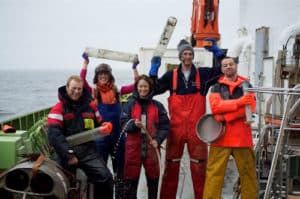
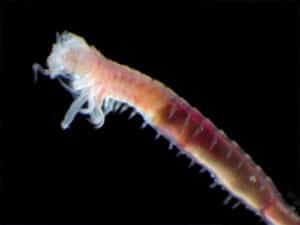
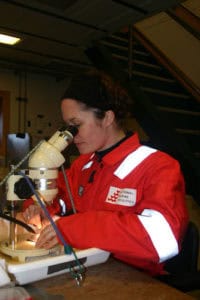
-
What I'd do with the prize money:
Building and collecting materials to take into schools.
-
Education:
The Plume School, Maldon, 1991-1999
-
Qualifications:
The University of Edinburgh
-
Work History:
I completed my PhD and postdoctoral research at the University of Edinburgh, before moving to my current job.
-
Current Job:
I’m a lecturer in the School of Geography, University of Leeds. I conduct scientific research, and teach undergraduate and postgraduate students.
-
My Interview
-
How would you describe yourself in 3 words?
Optimistic, enthusiastic, and fun-loving
Were you ever in trouble at school?
I’m afraid I have to confess to having been a bit of a teacher’s pet (ugh!). That’s not because I was desperate to be good, it was because I was too scared to do anything wrong. Anyway, the work I put in has got me where i want to be.
Who is your favourite singer or band?
Just one? R.E.M., amongst others.
If you had 3 wishes for yourself what would they be? - be honest!
I’d like to be able to teleport, so that I could instantly travel to all kinds of cool places. The others would involve health and happiness for everyone.
Tell us a joke.
OK, I’m not good at this. At one end of the scale I have “Q. What’s brown and sticky? A. A stick!” (groan). At the other end there is a physics joke that I really like that goes “A bar walks into a horse…sorry, wrong frame of reference!” There’s also a really good philosophy joke (my husband is a philosopher) which goes “Descartes walks into a bar. The barman says ‘will you have a pint?’ Descartes replies ‘I think not’, and promptly disappears” (OK, Descartes is the “I think, therefore I am” guy, so if he says “I think not”…).
-
